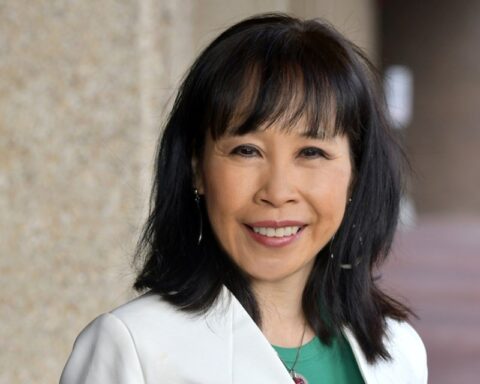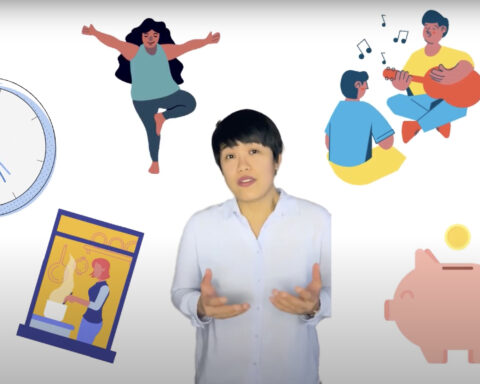Not long after I landed in Canada from Chile in 2010, I met a young man through some mutual friends. He was a high school dropout, and his reasons were pretty simple: he wasn’t a good student, and he didn’t know what to take after graduation, so he preferred to work.
It was rare for me to hear about people in their early 20s who hadn’t graduated high school. Despite still being a developing country, nearly 90 per cent of Chileans ages 25 to 34 are high school graduates. The education reform in the works over the last decade, with local students advocating for free education from the government, only promises a brighter future for Chileans. Today, some of the reform movement’s early leaders have even been elected to congress.
[T]he number of students with Spanish backgrounds dropping out of school reached an alarming 40 per cent in Toronto a few years ago.
But it seems students who don’t finish high school, like the young man I met, are commonplace in Canada, despite being named as having the seventh-best educational system in the world in Pearson’s rankings. This is a serious issue, and the number of students with Spanish backgrounds dropping out of school reached an alarming 40 per cent in Toronto a few years ago. Today, measures taken have lowered the number to 21 per cent, with the overall dropout rate at 14 per cent. Better than before, but still not ideal.
What Parents Say
Gustavo Rizzo, an Argentinean Pentecostal minister, has been living and working in Spanish-Canadian churches for 12 years since he, his wife and three children emigrated here. Rizzo says it is extremely hard to tutor your children when you are not originally from Canada.
“I think about three things,” he says. “First is the language barrier, because we need to communicate with our kids’ teachers; second, the educational system, which is completely a different thing than the one my wife and I had; and third, as a consequence of the second, the difficulties we have for helping our kids.”
“We had been living in Canada a few years… By that time, we already managed the language pretty well. But the educational system was way different than the one we had back home.” – Guido, parent
Colombian natives Guido and Rossy, who prefer only their first names be published, are parents of three daughters, and their experience sending the eldest to first grade was a rude awakening to the Canadian educational system.
“We had been living in Canada a few years… By that time, we already managed the language pretty well. But the educational system was way different than the one we had back home,” explains Guido. “In kindergarten, they told us that before first grade, playtime was the major objective. And when she started first grade the school wanted her to already know some basic things about reading. Every time I had asked previously, I was repeatedly told that daycare and kindergarten were meant to be for playtime. And after a couple of months in first grade they said our daughter was behind in her reading. Nobody paid attention to us when we said what happened in kindergarten. We understood then that in this culture the schools expect us to do the biggest part in teaching our kids to read instead of just helping. For me the idea is that schools here aid and reinforce the education they (the children) receive from home.”
What Experts Say
Luz Bascuñan, the first Latin American woman to be elected as a trustee at the Toronto District School Board (TDSB), shared her views on Spanish student dropout rates in the 2009 publication “Four in Ten Spanish-Speaking Youth and Early School Leaving in Toronto.” In it, Bascuñan reduced the problem to four factors: the hiring system, the status of Spanish language in Toronto’s schools, the school curriculum and the lack of formal structures for parent and community involvement.
Today, she says the amalgamation of Toronto in 1998 also negatively impacted the education system, and she calls things like Ontario regulation 612/00, which installed parent involvement committees “a very generic way” to address parents not getting involved.
“Involving parents in their children’s education, which is key to educational success, cannot be done only because there’s a regulation,” Bascuñan says. “It’s necessary to develop a number of different initiatives. Back in the day, before the amalgamation, we had funding enough to make monthly meetings with parents, when we had trained child care workers to take care of the kids while the parents were there, we had interpreters for all the different languages, and we had dinner for everyone, solving the biggest problems parents use as an excuse for not going.”
The problems for Guido and Rossy’s daughter got worse with pressure from the school, with calls and letters telling them how behind their daughter was. “Some teachers suggested maybe our daughter had listening or speech problems, or having some family issues at home,” Guido shares.
“I think parents that came from other countries are really concerned of their kids’ education. In fact, a better education was one of the main reasons why they immigrated here in the first place.” – Esther Contreras, Peel District School Board teacher
“As soon as the problems arose we started helping her every night after school until today,” Guido continues. “They’re nice at schools, very polite, but I think they try to evade being blamed for any problem that my daughter had. It’s true, at my house we try to only speak Spanish, but she speaks English too… she could talk in both languages with no problem. Even so, once a teacher told me to put her in ESL classes. And every time you asked for help they give you a long list of websites instead of talking to you any longer. We took her to all the doctors they sent us, and when we realized she didn’t have any medical problem, her teachers changed the nature of the issue over and over.”
Esther Contreras (who requested her name be changed) knows the problem first-hand. Born in Canada with Spanish parents, she is a teacher at the Peel District School Board (PDSB).
“I think parents that came from other countries are really concerned of their kids’ education. In fact, a better education was one of the main reasons why they immigrated here in the first place,” she explains.
Contreras can speak with Spanish parents in their mother tongue, but for parents, who speak other foreign languages, interpreters must be requested — the school must “make an appointment, and wait until the PDSB’s office sends somebody.”
Tackling the Problem
The local government has taken steps to address the situation. Some programs in Toronto are including Spanish teachers in their after-school homework clubs, and as Bascuñan says, “even when TDSB is still running behind, it has improved in the last years.”
“I don’t think teachers here are educated enough about newcomers’ issues and the impact that immigration really has on the students.” – Esther Contreras, Peel District School Board teacher
In June 2010, the PDSB released a study commissioned by its Parent Involvement Committee. The results were synthesized in 12 points, which covered the importance of heavily involving parents in the education of their children, including a stronger approach from the principal of every school, and more support for teachers encouraging parent involvement in school strategies. Teachers said “positive first” phone calls are a great strategy, unlike the types of calls Guido and Rossy received in the past that stressed them out.
However, Contreras says it is necessary to find a way to have more workshops. “I don’t think teachers here are educated enough about newcomers’ issues and the impact that immigration really has on the students.”
Of course, since then, Guido and Rossy have taken a different approach with their other two girls, teaching them the alphabet and some basic words early on. “And it worked,” says Guido. “My second daughter is in first grade and she is reading well already.”
And the oldest one? “In second grade they started teaching her math, and since she ‘couldn’t read,’ learning math was difficult, but not anymore. She’s in fifth grade and she is finally catching up now.”
Raúl A. Pinto is a Chilean journalist with a decade of experience in Canada, working for radio, television, print, and digital media. During his career, he has interviewed a variety of people, from undocumented migrants to the Prime Minister of Canada, as well as movie stars, writers, artists, business people, politicians and others, with coverage almost exclusively directed to the migrant community. He has been nominated twice for Journalist of the Year at the Canadian Latin Awards, and won in 2019. He is married to Sandra and is the father of Ana and Lucas.





